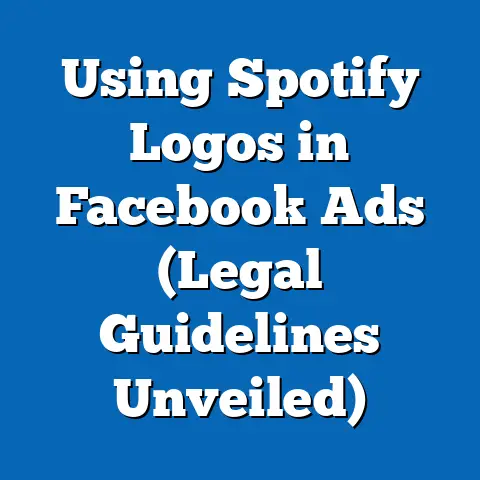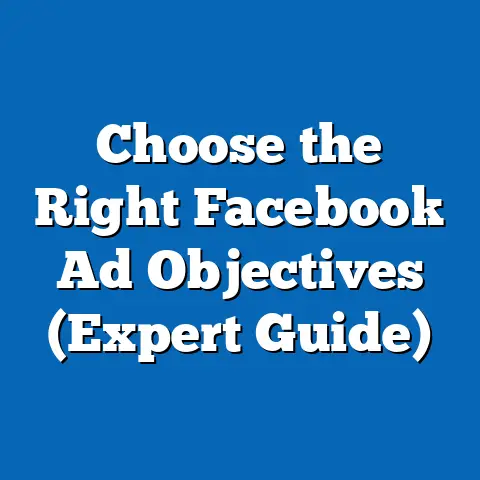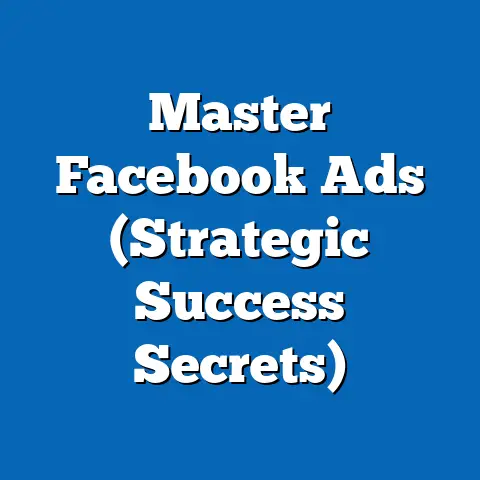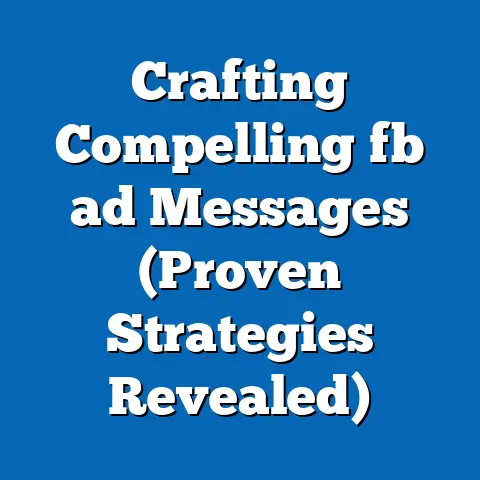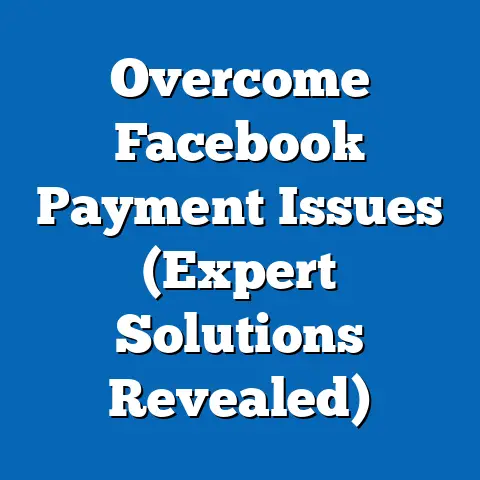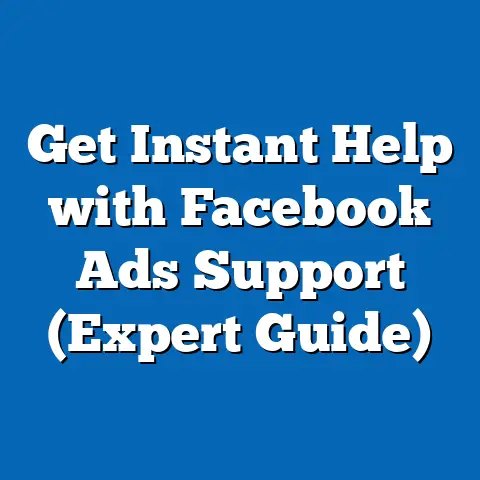Eliminate Facebook Page Ads (Expert Removal Strategies)
I’ve seen the advertising landscape change dramatically over the years.
It wasn’t long ago that print ads in newspapers and magazines, radio jingles, and television commercials were the kings of marketing.
These traditional methods laid the foundation for what we know today, but the arrival of the internet, and specifically social media platforms like Facebook, revolutionized the game.
Now, businesses can reach incredibly targeted audiences with a level of precision that was previously unimaginable.
However, with this power comes responsibility, and sometimes, the most strategic move is to eliminate certain Facebook ads altogether.
Understanding the Impact of Facebook Ads
Facebook ads are a dominant force in the modern marketing world.
Their advantages are undeniable.
They offer an unparalleled reach, tapping into a global network of billions of users.
The detailed analytics provided by Facebook Ads Manager allow you to track performance metrics with incredible granularity, giving you real-time insights into what’s working and what’s not.
Perhaps most importantly, Facebook’s targeting capabilities are incredibly sophisticated, allowing you to reach highly specific demographics based on interests, behaviors, location, and much more.
However, the allure of Facebook ads can sometimes blind us to the potential downsides.
I’ve seen it happen time and again: businesses get caught up in the excitement of reaching a massive audience and lose sight of the crucial elements that make an ad campaign successful.
Here are some potential pitfalls to be aware of:
- Ad Fatigue: The same ads shown repeatedly to the same audience can quickly lose their effectiveness.
Users become desensitized, and your message gets lost in the noise. - Audience Disengagement: If your ads aren’t relevant, engaging, or valuable to your target audience, they’ll simply scroll past them.
This leads to wasted ad spend and missed opportunities. - Negative Brand Perception: Poorly executed ads can actually damage your brand’s reputation.
Intrusive, irrelevant, or misleading ads can annoy users and create a negative association with your business.
Consider this: A study by Nielsen found that 70% of consumers trust online reviews, while only 47% trust online banner ads.
This highlights the importance of focusing on authentic engagement and delivering value, rather than simply bombarding users with ads.
I once worked with a client who was spending a significant amount of money on Facebook ads, but their engagement rates were abysmal.
Their ads were generic and didn’t resonate with their target audience.
After analyzing their data, we decided to drastically reduce their ad spend and focus on creating more targeted and engaging content.
The result?
Their organic reach increased, their engagement soared, and their overall marketing ROI improved significantly.
Takeaway: Facebook ads can be a powerful tool, but they’re not a magic bullet.
Understanding their potential impact, both positive and negative, is crucial for making informed decisions about your advertising strategy.
Common Reasons for Wanting to Eliminate Facebook Ads
There are numerous reasons why a business might find itself considering eliminating Facebook ads.
It’s not always a sign of failure; sometimes, it’s a strategic pivot.
Here are some of the most common reasons I’ve encountered:
- High Costs Without Adequate ROI: This is perhaps the most frequent reason.
If you’re spending a significant amount of money on Facebook ads but not seeing a corresponding increase in sales, leads, or brand awareness, it’s time to re-evaluate your strategy.
Sometimes, the cost of acquiring a customer through Facebook ads is simply too high to justify the investment. - Poor Engagement Rates: Low click-through rates (CTR), minimal likes, comments, and shares, and a high bounce rate on your landing pages are all indicators that your ads aren’t resonating with your target audience.
This could be due to a variety of factors, including irrelevant messaging, unappealing visuals, or poor targeting. - Changes in Business Direction: As your business evolves, your marketing strategy needs to adapt.
If you’re launching a new product, targeting a different audience, or shifting your brand messaging, your existing Facebook ads may no longer be relevant. - Shifts in Audience Preferences: What worked yesterday may not work today.
Audience preferences and behaviors are constantly changing, and you need to stay on top of these trends.
If your ads are no longer capturing the attention of your target audience, it might be time to pull the plug. - Focus on Organic Growth: Some businesses choose to shift their focus from paid advertising to organic social media growth.
This involves creating engaging content, building a strong community, and fostering authentic relationships with your audience.
While organic growth takes time and effort, it can often be more sustainable and cost-effective in the long run. - Testing Alternative Marketing Channels: Facebook ads aren’t the only game in town.
There are countless other digital marketing channels you can explore, including search engine optimization (SEO), email marketing, influencer marketing, and content marketing.
If you’re not seeing the results you want from Facebook ads, it might be time to experiment with other channels.
I recall a client who ran a local restaurant.
They initially invested heavily in Facebook ads to drive traffic to their establishment.
However, they quickly realized that their target audience was more responsive to local community events and word-of-mouth marketing.
They decided to eliminate their Facebook ads and instead focus on sponsoring local events and partnering with neighborhood influencers.
This shift in strategy resulted in a significant increase in foot traffic and a stronger connection with their community.
Takeaway: Eliminating Facebook ads isn’t always a failure.
It can be a strategic decision based on a variety of factors, including cost, engagement, business direction, audience preferences, and the desire to explore alternative marketing channels.
Expert Removal Strategies
Now, let’s get to the heart of the matter: how to effectively eliminate Facebook page ads.
Here are some expert strategies I’ve developed and refined over years of experience:
Strategy 1: Pausing vs. Deleting Ads
The first decision you need to make is whether to pause your ads or delete them entirely.
There are pros and cons to both approaches:
Pausing Ads: This simply stops your ads from running.
The ads remain in your Ads Manager, along with all the associated data.- Pros:
- Easy to Restart: If you decide to run the ads again in the future, you can simply unpause them.
- Historical Data: You retain all the historical data associated with the ads, which can be valuable for future analysis and optimization.
- Testing Purposes: Pausing ads allows you to temporarily stop them to test different strategies or make adjustments without losing all your work.
- Cons:
- Clutter: Over time, your Ads Manager can become cluttered with paused ads, making it difficult to find the ones you’re currently running.
- Potential Confusion: Paused ads can sometimes be confusing, especially if you have multiple campaigns running simultaneously.
- Pros:
Deleting Ads: This permanently removes the ads from your Ads Manager.
- Pros:
- Clean and Organized: Deleting ads helps keep your Ads Manager clean and organized.
- Reduces Clutter: It eliminates the clutter of paused ads, making it easier to focus on your active campaigns.
- Cons:
- Data Loss: You lose all the historical data associated with the ads.
- Irreversible: Deleting ads is irreversible.
If you decide to run them again in the future, you’ll have to recreate them from scratch.
- Pros:
Pausing Ads: This simply stops your ads from running.
The ads remain in your Ads Manager, along with all the associated data.
- Pros:
- Easy to Restart: If you decide to run the ads again in the future, you can simply unpause them.
- Historical Data: You retain all the historical data associated with the ads, which can be valuable for future analysis and optimization.
- Testing Purposes: Pausing ads allows you to temporarily stop them to test different strategies or make adjustments without losing all your work.
- Cons:
- Clutter: Over time, your Ads Manager can become cluttered with paused ads, making it difficult to find the ones you’re currently running.
- Potential Confusion: Paused ads can sometimes be confusing, especially if you have multiple campaigns running simultaneously.
- Easy to Restart: If you decide to run the ads again in the future, you can simply unpause them.
- Historical Data: You retain all the historical data associated with the ads, which can be valuable for future analysis and optimization.
- Testing Purposes: Pausing ads allows you to temporarily stop them to test different strategies or make adjustments without losing all your work.
- Clutter: Over time, your Ads Manager can become cluttered with paused ads, making it difficult to find the ones you’re currently running.
- Potential Confusion: Paused ads can sometimes be confusing, especially if you have multiple campaigns running simultaneously.
Deleting Ads: This permanently removes the ads from your Ads Manager.
- Pros:
- Clean and Organized: Deleting ads helps keep your Ads Manager clean and organized.
- Reduces Clutter: It eliminates the clutter of paused ads, making it easier to focus on your active campaigns.
- Cons:
- Data Loss: You lose all the historical data associated with the ads.
- Irreversible: Deleting ads is irreversible.
If you decide to run them again in the future, you’ll have to recreate them from scratch.
- Clean and Organized: Deleting ads helps keep your Ads Manager clean and organized.
- Reduces Clutter: It eliminates the clutter of paused ads, making it easier to focus on your active campaigns.
- Data Loss: You lose all the historical data associated with the ads.
- Irreversible: Deleting ads is irreversible.
If you decide to run them again in the future, you’ll have to recreate them from scratch.
My Recommendation: In most cases, I recommend pausing ads rather than deleting them.
The historical data can be invaluable for future analysis and optimization.
However, if you’re absolutely certain that you’ll never run the ads again, and you want to declutter your Ads Manager, then deleting them is an option.
Strategy 2: Analyzing Ad Performance
Before you start eliminating ads, it’s crucial to analyze their performance and identify the underperformers.
Facebook Ads Manager provides a wealth of data that can help you make informed decisions.
Here are some key metrics to track:
- Reach: The number of unique people who saw your ad.
- Impressions: The number of times your ad was displayed.
- Click-Through Rate (CTR): The percentage of people who saw your ad and clicked on it.
A low CTR indicates that your ad isn’t resonating with your target audience. - Cost Per Click (CPC): The amount you pay each time someone clicks on your ad.
A high CPC indicates that your ad is expensive to run. - Cost Per Mille (CPM): The amount you pay for 1,000 impressions of your ad.
A high CPM indicates that your ad is expensive to display. - Conversion Rate: The percentage of people who clicked on your ad and completed a desired action, such as making a purchase or filling out a form.
A low conversion rate indicates that your landing page isn’t effective. - Return on Ad Spend (ROAS): The amount of revenue you generate for every dollar you spend on ads.
A low ROAS indicates that your ads aren’t generating enough revenue to justify the investment.
To analyze your ad performance, go to Facebook Ads Manager and select the campaign, ad set, or ad you want to analyze.
Then, click on the “Columns” dropdown and select the metrics you want to track.
You can also create custom reports to track specific metrics over time.
My Tip: Pay close attention to the “Relevance Score” of your ads.
This score, which ranges from 1 to 10, indicates how relevant your ad is to your target audience.
A low Relevance Score indicates that your ad isn’t resonating with your target audience, and you should consider pausing or deleting it.
Strategy 3: Audience Segmentation
Effective audience segmentation is crucial for maximizing the ROI of your Facebook ads.
By segmenting your audience into smaller, more targeted groups, you can create ads that are more relevant and engaging.
Here are some ways to segment your audience:
- Demographics: Age, gender, location, education, and income.
- Interests: Hobbies, passions, and topics that your target audience is interested in.
- Behaviors: Online activities, purchase history, and other behaviors that your target audience exhibits.
- Custom Audiences: People who have interacted with your business in the past, such as website visitors, email subscribers, and existing customers.
- Lookalike Audiences: People who are similar to your existing customers.
If you’re not segmenting your audience effectively, you’re likely wasting money on ads that are being shown to people who aren’t interested in your products or services.
Example: Let’s say you’re selling running shoes.
Instead of targeting everyone who’s interested in fitness, you could segment your audience into smaller groups based on their running habits.
For example, you could target people who run marathons, people who run trails, and people who are just starting to run.
This would allow you to create ads that are more relevant to each group, which would likely result in higher engagement rates and conversions.
Strategy 4: Leveraging A/B Testing
A/B testing, also known as split testing, is a powerful technique for optimizing your Facebook ads.
It involves creating two or more versions of an ad and testing them against each other to see which one performs better.
Here are some elements you can A/B test:
- Headline: The text that appears at the top of your ad.
- Body Copy: The main text of your ad.
- Image or Video: The visual element of your ad.
- Call-to-Action (CTA): The button or link that encourages people to take action.
- Targeting: The demographics, interests, and behaviors you’re targeting.
To A/B test your ads, go to Facebook Ads Manager and create two or more versions of the ad you want to test.
Then, run the ads for a specific period of time and track their performance.
The ad that performs better is the one you should continue running.
My Experience: I’ve seen A/B testing make a huge difference in the performance of Facebook ads.
Even small changes, like tweaking the headline or changing the image, can have a significant impact on CTR and conversions.
Strategy 5: Implementing Ad Blockers
While primarily used by consumers, understanding ad blockers can be valuable for marketers.
Knowing how and why users block ads can inform your strategy and help you create ads that are less likely to be blocked.
While you can’t directly implement ad blockers on your Facebook page to remove other people’s ads (that’s not how they work), you can use them to understand how your ads are perceived.
How it Works: Ad blockers are browser extensions or software that prevent ads from being displayed.
They work by identifying and blocking ad-related code and content.
Why Users Use Them:
- Annoyance: Users find ads intrusive, disruptive, and annoying.
- Privacy Concerns: Users are concerned about their data being tracked and used to target them with ads.
- Performance: Ads can slow down website loading times and consume bandwidth.
What You Can Learn:
- Ad Formats to Avoid: If users are blocking certain types of ads, it’s a sign that those ads are particularly annoying or intrusive.
- Messaging to Refine: If your ads are being blocked, it could be a sign that your messaging is too aggressive or salesy.
- User Experience to Improve: Focus on creating ads that are relevant, engaging, and valuable to your target audience.
Takeaway: Understanding ad blockers can help you create ads that are less likely to be blocked and more likely to resonate with your target audience.
Transitioning Away from Facebook Ads
So, you’ve eliminated your Facebook ads.
Now what?
It’s crucial to have a plan in place to maintain your brand visibility and engagement.
Here are some alternative marketing strategies to consider:
- Organic Social Media Growth: Focus on creating engaging content, building a strong community, and fostering authentic relationships with your audience.
- Influencer Partnerships: Collaborate with influencers who have a large and engaged following in your target market.
- Search Engine Optimization (SEO): Optimize your website and content for search engines to attract organic traffic.
- Email Marketing: Build an email list and send regular newsletters and promotions to your subscribers.
- Content Marketing: Create valuable and informative content that attracts and engages your target audience.
- Other Digital Marketing Channels: Explore other digital marketing channels, such as Google Ads, LinkedIn Ads, and TikTok Ads.
My Advice: Don’t put all your eggs in one basket.
Diversify your marketing efforts and explore a variety of channels to reach your target audience.
Conclusion
Eliminating Facebook page ads is a strategic decision that should be based on a careful analysis of your ad performance, your business goals, and your target audience.
It’s not always a sign of failure; sometimes, it’s a sign that you’re being proactive and adapting to changing market conditions.
Remember, effective advertising is about strategic choices, not just budget allocation.
Continuously assess your marketing strategies for optimal performance, and don’t be afraid to make changes when necessary.
By following the expert removal strategies I’ve outlined in this guide, you can effectively eliminate Facebook page ads that aren’t performing and focus on strategies that deliver a better return on investment.

